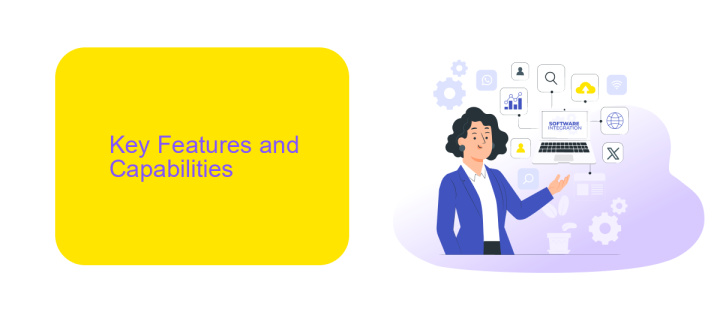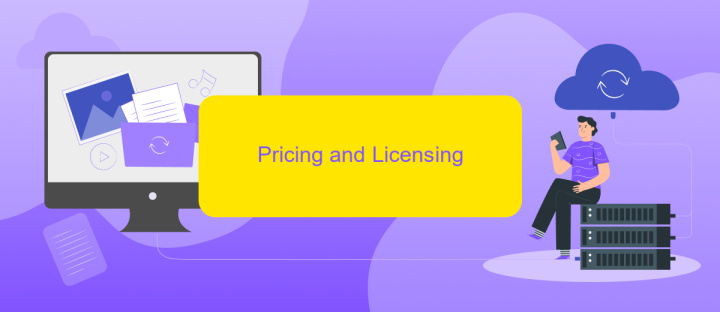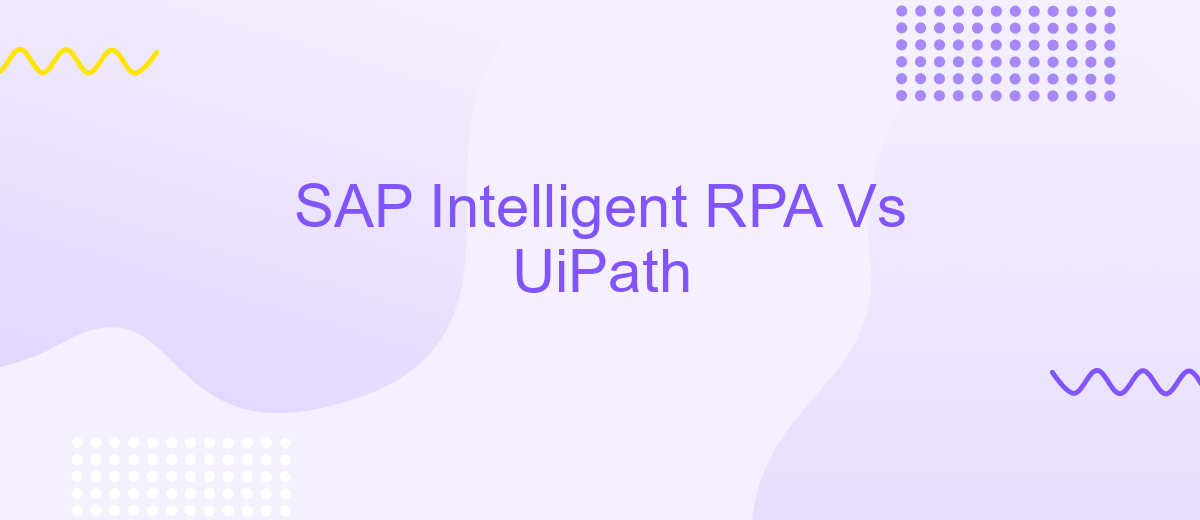SAP Intelligent RPA Vs UiPath
In the rapidly evolving landscape of robotic process automation (RPA), SAP Intelligent RPA and UiPath stand out as leading contenders. Both platforms offer powerful tools for automating business processes, yet they differ in features, usability, and integration capabilities. This article delves into a comparative analysis of SAP Intelligent RPA and UiPath, helping organizations make informed decisions on their automation journey.
Executive Summary
SAP Intelligent RPA and UiPath are leading solutions in the realm of robotic process automation (RPA). Both platforms offer powerful tools to streamline business processes, enhance efficiency, and reduce operational costs. However, they cater to different needs and have unique strengths that make them suitable for specific scenarios.
- SAP Intelligent RPA: Best suited for enterprises already utilizing SAP systems, offering seamless integration and specialized features for SAP environments.
- UiPath: Known for its user-friendly interface and extensive community support, making it ideal for a wide range of industries and use cases.
When considering integration capabilities, services like ApiX-Drive can facilitate the connection between different platforms, ensuring smooth data flow and operational harmony. By leveraging the strengths of either SAP Intelligent RPA or UiPath in conjunction with integration tools, businesses can achieve optimal automation outcomes tailored to their specific needs.
Key Features and Capabilities

SAP Intelligent RPA offers a comprehensive suite of features designed to streamline business processes through automation. Its robust capabilities include advanced machine learning algorithms, seamless integration with SAP environments, and a user-friendly interface for creating and managing bots. Additionally, SAP Intelligent RPA provides pre-built templates and a powerful analytics dashboard, allowing users to monitor and optimize their automated workflows efficiently.
UiPath, on the other hand, excels in its extensive range of integrations and ease of use. It supports a wide variety of applications and platforms, making it highly versatile for different business needs. UiPath's drag-and-drop interface simplifies bot creation, while its robust community and extensive library of pre-built activities accelerate development. For businesses looking to integrate various systems, services like ApiX-Drive can facilitate seamless data exchange between UiPath and other applications, enhancing overall efficiency and productivity.
Pricing and Licensing

When comparing SAP Intelligent RPA and UiPath, understanding their pricing and licensing models is crucial for making an informed decision. Both platforms offer flexible pricing structures, but they cater to different business needs and scales.
- UiPath offers a subscription-based model with various tiers, including Community, Pro, and Enterprise editions. The Community edition is free, making it ideal for small businesses and individual developers. The Pro and Enterprise editions come with advanced features and support, tailored for larger organizations.
- SAP Intelligent RPA follows a usage-based pricing model, which can be more cost-effective for businesses with fluctuating automation needs. SAP also provides enterprise-level packages that include additional services and support.
Both platforms offer trial versions, allowing businesses to evaluate their capabilities before committing. Additionally, integrating these platforms with other business tools can be simplified using services like ApiX-Drive, which automates data transfer and synchronization, enhancing overall efficiency. Therefore, the choice between SAP Intelligent RPA and UiPath will largely depend on your specific business requirements and budget constraints.
Use Cases and Implementation

SAP Intelligent RPA and UiPath are powerful tools for automating various business processes. SAP Intelligent RPA excels in environments heavily reliant on SAP systems, offering seamless integration with SAP S/4HANA, SAP ECC, and other SAP applications. UiPath, on the other hand, provides a more versatile platform, suitable for a wide range of industries and applications.
When implementing these tools, it's crucial to identify the specific use cases that will benefit most from automation. For instance, SAP Intelligent RPA can automate repetitive tasks within SAP environments, such as data entry, report generation, and system monitoring. UiPath is ideal for automating processes across diverse systems, including legacy applications, web services, and cloud platforms.
- SAP Intelligent RPA: Data migration between SAP systems
- UiPath: Customer service automation through chatbots
- SAP Intelligent RPA: Automating financial transactions in SAP
- UiPath: Streamlining HR processes across multiple platforms
For seamless integration and enhanced functionality, tools like ApiX-Drive can be utilized. ApiX-Drive facilitates the connection between different systems and applications, ensuring smooth data flow and process automation. This service can significantly reduce the complexity and time required for setting up integrations, making it a valuable asset in the implementation phase.
Comparison Table
When comparing SAP Intelligent RPA and UiPath, several key differences emerge. SAP Intelligent RPA is tightly integrated with SAP environments, making it an ideal choice for businesses heavily reliant on SAP systems. It offers native support for SAP modules and seamless integration with other SAP services. On the other hand, UiPath is known for its user-friendly interface and extensive community support. It provides a wide range of pre-built automation templates and activities, making it easier for users to get started with automation projects quickly.
Both platforms offer robust integration capabilities, but when it comes to third-party integrations, services like ApiX-Drive can play a crucial role. ApiX-Drive helps streamline the integration process by connecting various applications and automating data flows between them. This can be particularly beneficial for UiPath users who need to integrate with non-SAP systems. Overall, the choice between SAP Intelligent RPA and UiPath depends on the specific needs and existing infrastructure of the business.
FAQ
What are the main differences between SAP Intelligent RPA and UiPath?
Which platform is easier to use for beginners?
How do these platforms handle integration with other systems?
What are the licensing and cost differences between SAP Intelligent RPA and UiPath?
Which platform offers better scalability for large enterprises?
Strive to take your business to the next level, achieve your goals faster and more efficiently? Apix-Drive is your reliable assistant for these tasks. An online service and application connector will help you automate key business processes and get rid of the routine. You and your employees will free up time for important core tasks. Try Apix-Drive features for free to see the effectiveness of the online connector for yourself.

